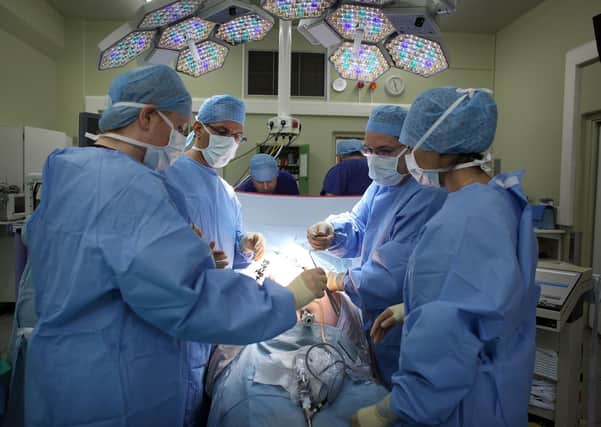Half of coronavirus patients who have surgery suffer complications


Researchers say clinicians must carefully balance risk of complications linked to SARS-CoV-2 infection with risks of delaying surgery. They suggest the threshold for surgery should be raised compared to normal practice.
In the study, published in the Lancet, post-operative pulmonary complications occurred in 51 per cent of coronavirus patients who underwent surgery.
Advertisement
Hide AdAdvertisement
Hide AdThese complications included conditions such as pneumonia, acute respiratory distress syndrome and unexpected postoperative ventilation.
Among patients with SARS-CoV-2 infection who underwent surgery, almost 24 per cent died within 30 days. Of those with pulmonary complications, 38 per cent died within 30 days of their surgery.
SARS-CoV-2 is a specific virus that can cause Covid-19.
The study also identified factors associated with worse outcomes.
As well as being male or aged 70 or older, patients with comorbidities and those undergoing cancer surgery, emergency or major surgery were among the most vulnerable.
Researchers conducted an observational study of 1,128 patients across 24 countries between 1 January and 31 March this year.
The study included data from hospitals mainly in Europe and America with ongoing coronavirus outbreaks.
Lead author Dr Aneel Bhangu, from the University of Birmingham, said: “Although the risks associated with Covid-19 need to be carefully balanced against the risks of delaying surgery for every individual patient, our study suggests that the thresholds for surgery should be raised, compared to normal practice.
“Medical teams should consider postponing non-critical procedures and promoting other treatment options, which may delay the need for surgery or sometimes avoid it altogether.”
Advertisement
Hide AdAdvertisement
Hide AdDr Ana Minaya-Bravo, from the Hospital Universitario del Henares and Universidad Francisco de Vitoria in Spain, said: “When hospitals resume routine surgery, it’s likely it will take place in environments that remain exposed to SARS-CoV-2.
“Hospital-acquired infection will remain a challenge, but strategies are urgently required to minimise it, as well as to minimise the risk of pulmonary complications for infected patients whose surgery cannot be delayed.”
Comments
Want to join the conversation? Please or to comment on this article.